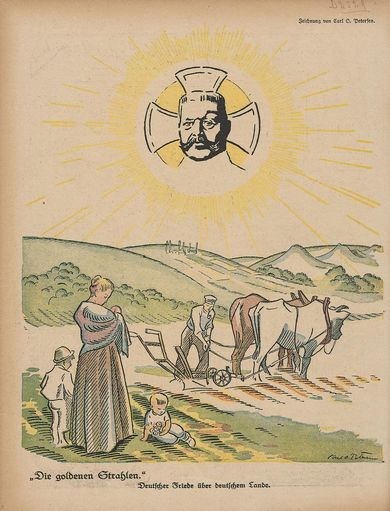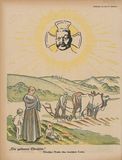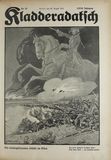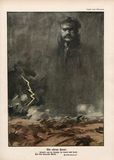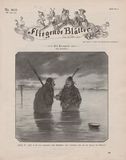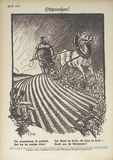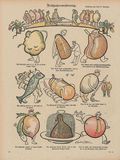The War in the German Satirical Journals
The War in the German Satirical Journals
Peaceful, far from wrath and rancour,
The farmer sowed the nutritious food.
He saw the delicious seed ripen;
Got ready to fill his barn.
There, at the protective walls of the farm,
The wild, destructive fire was laid
By jealous neighbours! Betrayal!
War!
Kladderadatsch Nr. 32, 1914
Upon the outbreak of the war, the German satirical journals, which had certainly exercised political and social criticism beforehand, now also succumbed to the official line of solidarity. Overnight, the main opponents of these journals became the powers of the Entente: for example France, presented as an attractive and innocent Marianne who was seduced into a war she never wanted by Great Britain.
Great Britain, “perfidious Albion
”, was caricatured by the figure of John Bull, the egotistical master of the world market, who saw himself threatened by the economic power of Germany and incited the states of Europe against his enemy.
The Russian Tsarist Empire, guided by British interests, was represented by the bear, which was regarded as lethargic and barbaric.
And with the entry of the USA to the war, Uncle Sam also started to appear in the German satirical journals. While he was drawn into the war by Britain, his talk of freedom and democracy ultimately merely concealed his goal of relieving the Empire of its position as a world power.
For propaganda to be successful it was essential that topics could be summarised under a large idea and world view. Among the Allies, this all-encompassing idea was the battle for freedom, civilisation and democracy in the face of the regressive barbarianism of Prussian militarism and the semi-absolutistic rule of the Hohenzollern.
In Germany, in contrast, it was not possible to develop a catchy slogan that could endow the loss of life with a higher meaning. The disparagement of the Western democracies as soulless capitalistic rulers was unconvincing, and the attempt to construe a narrative of the “Ideas of 1914” that had emerged from the initial solidarity of some parts of German society also failed.

